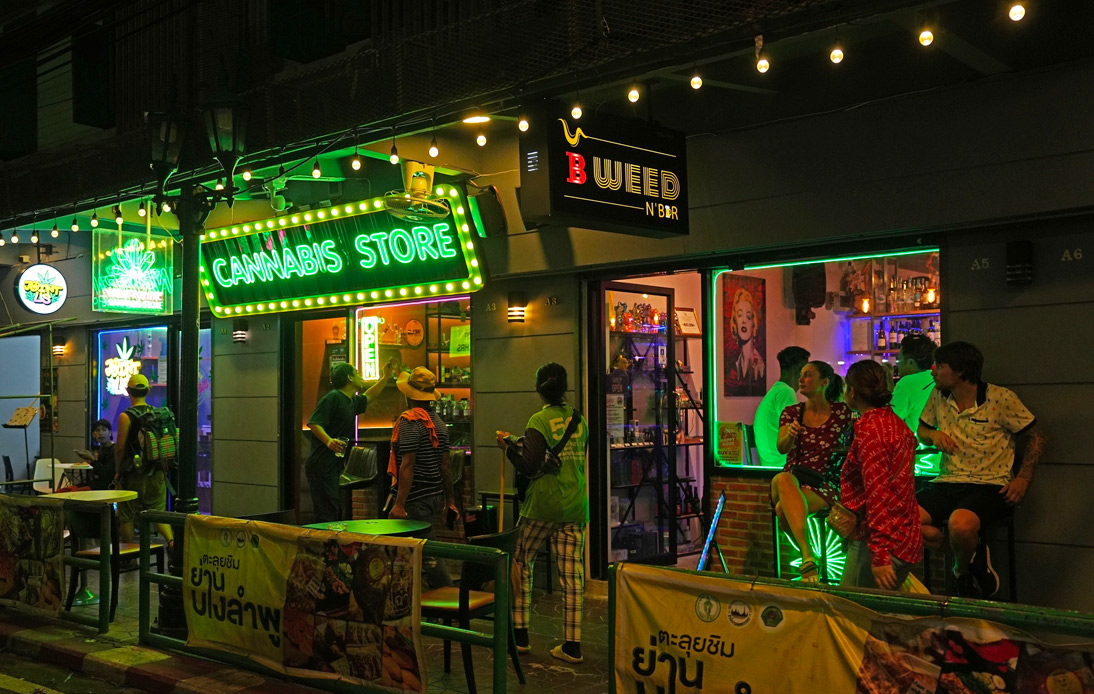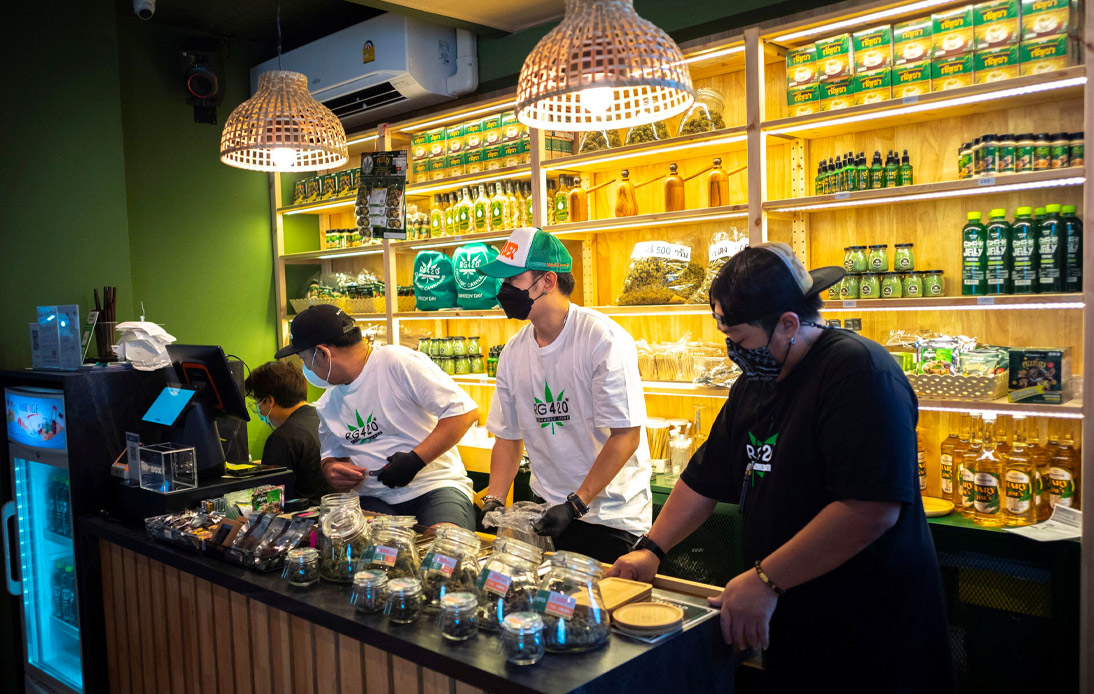
The Public Health Ministry is preparing a cannabis and hemp control bill, expected to be enacted next year, to curb misuse of the plant.
Cholnan Srikaew, the Public Health Minister, stated the bill will maintain cannabis’s non-narcotic status, focusing on preventing its improper use. The bill stipulates cannabis as a controlled plant, classifying any extract with over 0.2% THC as a narcotic.
It aims to regulate non-narcotic cannabis parts containing psychoactive substances, according to Dr. Cholnan. He emphasized the ministry’s support for medicinal, but not recreational, cannabis use, requiring growers to obtain authorization.
The previous government’s Bhumjaithai Party proposed a bill allowing households to cultivate up to 15 cannabis plants for personal use. Under the new bill, growers must not only inform local authorities but also seek prior permission.
Licensed cannabis shops can operate under the new law if they comply with specific requirements, like banning on-premises smoking and dried cannabis bud sales, Dr. Cholnan explained.
The bill will also define the specific locations where the sale or consumption of cannabis is prohibited.
The Department of Thai Traditional And Alternative Medicine has drafted the bill, which the Public Health Ministry’s legal team will review before a public hearing this month.
Dr. Cholnan said the bill sets clear guidelines for medical cannabis use and usage venues. He stressed that the bill restricts free cannabis cultivation, advocating for scientific methods in medical-grade cannabis farming.
The draft requires a permit for cannabis cultivation, with further details to be outlined in future ministerial regulations, Dr. Cholnan added.
Supachai Jaisamut, advising Deputy Prime Minister Anutin Charnvirakul, noted that while the Bhumjaithai’s previous proposal allowed plant registration, the new bill requires explicit permission.
Bill’s Passage Next Year
He observed that many aspects of the new ministry-proposed bill align with Bhumjaithai’s version. Supachai mentioned that other MPs or parties could propose alternative bills to parliament.
However, he noted that the Public Health Ministry’s draft will be the primary focus in parliament, with potential amendments from the House vetting committee.
”Currently, Thailand exports cannabis extracts which are used for the production of medicine and cosmetics worth about 100 billion baht each year,” Mr Supachai said.
”However, cannabis and cannabis-based products are also smuggled into the country illegally, which dealt a blow to local producers. Without proper laws and regulations in place, Thailand will lose trade opportunities.”
”Recently, Japan has also floated the idea of decriminalising cannabis. Japanese lawmakers invited me to discuss the matter as Japan has imported cannabis extracts from Thailand,” he stated.
Under previous regulations, cannabis shops required permission from the Department of Thai Traditional And Alternative Medicine, though some operate illegally, Supachai added.
Bhumjaithai’s 2019 election campaign included cannabis liberalization, leading to its delisting as a Category 5 narcotic, except for high THC extracts.
This allowed legal cannabis cultivation and use as a medicinal herb, promoting its incorporation in various industries.
Current regulations prohibit public smoking, underage and pregnant women sales, and require licensing for cannabis cultivation and commercial use.
However, the lack of control legislation led to industry chaos, with foreign-owned businesses and unguided consumer purchases.
Parliament has yet to approve the cannabis bill, raising questions about the extent of cannabis liberalization.
Bhumjaithai’s earlier bill, which included zoning laws and strict penalties, was rejected in parliament. The bill faced opposition from Pheu Thai and Democrat parties, who advocated for reinstating cannabis as a narcotic due to lax regulations.
Parnthep Pourpongpan, a college dean, expressed concerns that the bill might limit cannabis access for ordinary people and patients.
He cited the reluctance of modern medicine practitioners to prescribe cannabis due to insufficient knowledge of its benefits.
Daycha Siripatra, a medicinal cannabis advocate, defends its non-narcotic status, citing its benefits in traditional medicine.
He mentioned that 47 million people registered to grow cannabis, ready to oppose its reclassification as a narcotic.
Siripatra argued for regulated cannabis use, contrasting its benefits with the dangers of legal substances like alcohol and cigarettes.
Prasitchai Nunual, Thailand’s Cannabis Future Network leader, warned against reclassifying cannabis as a narcotic, citing potential civil resistance.
In discussions with Dr. Cholnan, Mr. Prasitchai expressed hope that cannabis would remain non-narcotic, adopting a wait-and-see approach.
He raised concerns about the bill’s stringent requirements discouraging household cannabis cultivation, such as greenhouse growing and academic partnerships.





















